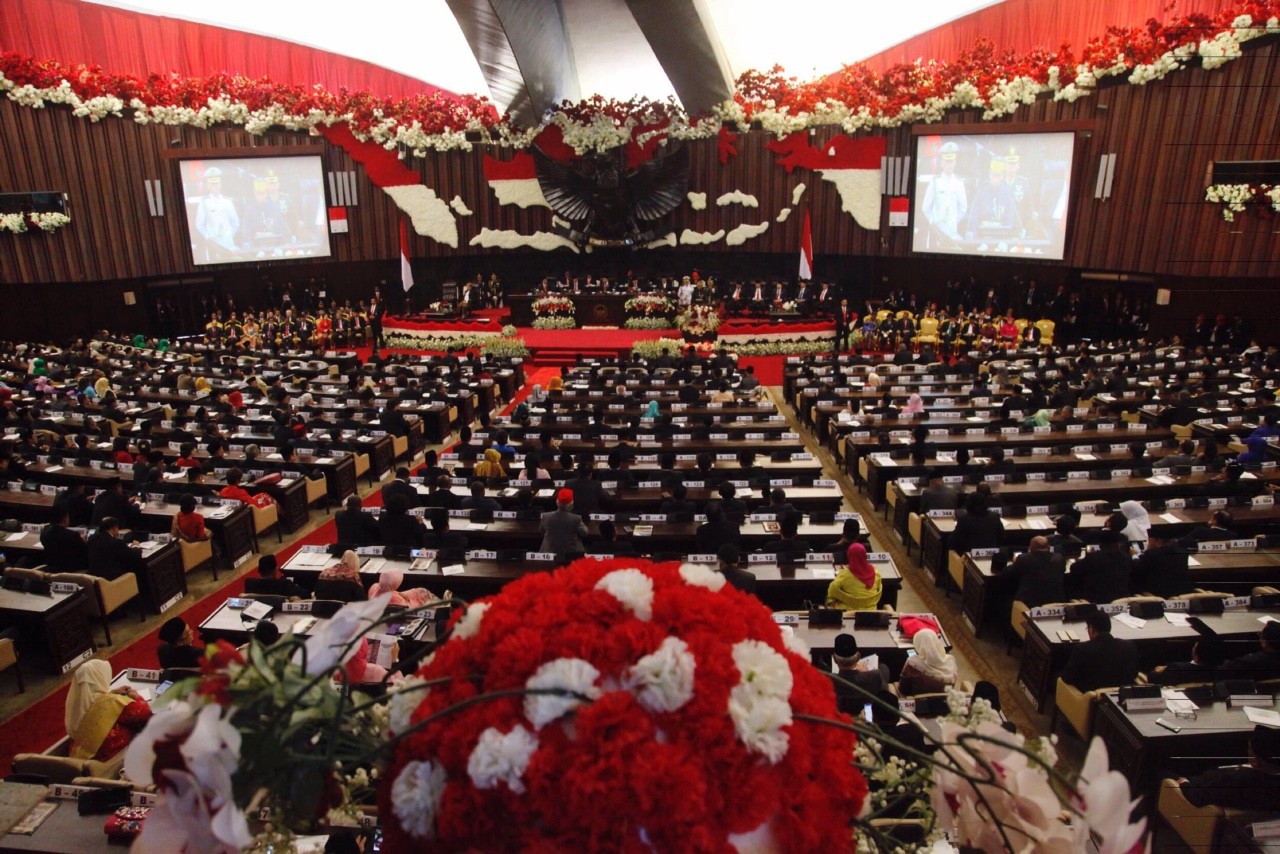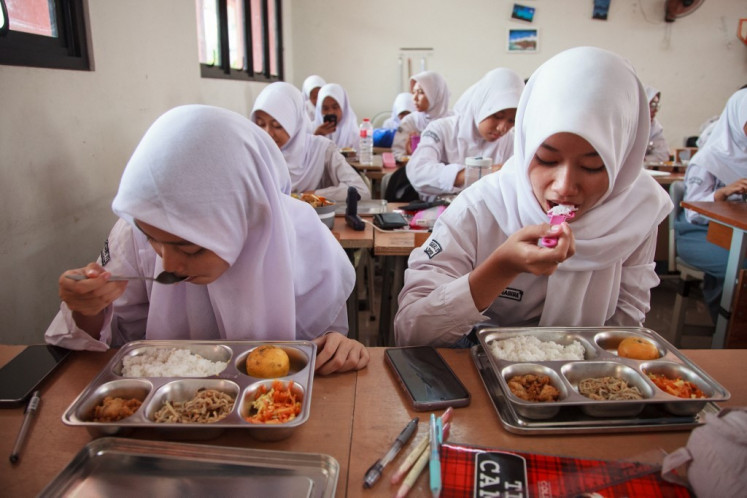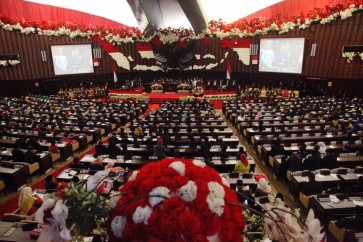Popular Reads
Top Results
Can't find what you're looking for?
View all search resultsPopular Reads
Top Results
Can't find what you're looking for?
View all search resultsCoalition building strategy à la Jokowi
It took only two years for Jokowi to tip the political balance by controlling almost 70 percent of support in the House, compared to 37 percent of the House on his first day in office.
Change text size
Gift Premium Articles
to Anyone
I
t has been three years since Joko “Jokowi” Widodo took the oath at the House of Representatives as the president. Jokowi is the first Indonesian president elected from outside the circle of the political and military elite, thus considered a newbie in national politics. Nevertheless, observing what he has withstood so far, Jokowi has proven himself to be an agile and tough political player in Indonesia.
It took only two years for Jokowi to tip the political balance by controlling almost 70 percent of support in the House, compared to 37 percent of the House on his first day in office. This helped pave the way for his reform agenda. Golkar (the second-largest political party), the National Mandate Party (PAN) and United Development Party (PPP) had switched their allegiance, leaving only Gerindra and the Prosperous Justice Party (PKS) in the opposition camp.
In a masterstroke of political maneuvering, he exercised his presidential authority with a “carrot-and-stick” strategy, exploiting divisions in rival parties to form a large ruling coalition. The “stick” part of the approach was evident when the PPP and Golkar were driven by internal feuding. The government recognized only the pro-Jokowi faction of each party, disrupting the unity of the opposition coalition. This stern approach had succeeded in ousting opposition factions and bringing both parties into the government coalition.
The “carrot” part of the strategy was used by offering Cabinet posts to these parties in return for supporting the government. Ministerial positions are like gold for political parties because they provide access to substantial political resources, a valuable capital that can help them prepare for the 2019 political year.
Jokowi appointed Lukman Hakim Saifuddin of the PPP as the religious affairs minister, Asman Abnur from PAN as the administrative and bureaucratic reform minister and Golkar’s Airlangga Hartanto as the industry minister. Jokowi also approved the reappointment of Setya Novanto as the House speaker, despite the Setya being linked to several corruption cases. The move came after Setya replaced Aburizal Bakrie as Golkar chairman and joined the government coalition.
The President employed the carrot-and-stick strategy not only for forming his coalition, but also for maintaining its solidity to support key policies. For instance, in deliberation of the 2016 state budget, Jokowi used PAN to convince the opposition Gerindra to support the budget. After that, Jokowi rewarded PAN with a post in his third Cabinet reshuffle.
Jokowi also demonstrated his mettle in handling deliberations of the election bill. The Gerindra-led opposition coalition had wanted to scrap a requirement that parties must have 20 percent of the seats in the House to be able to nominate a presidential candidate. Parties such as PAN, the PPP and the National Awakening Party (PKB) also supported opposition stance, as the threshold would likely prevent them from nominating their own presidential candidates in 2019.


















